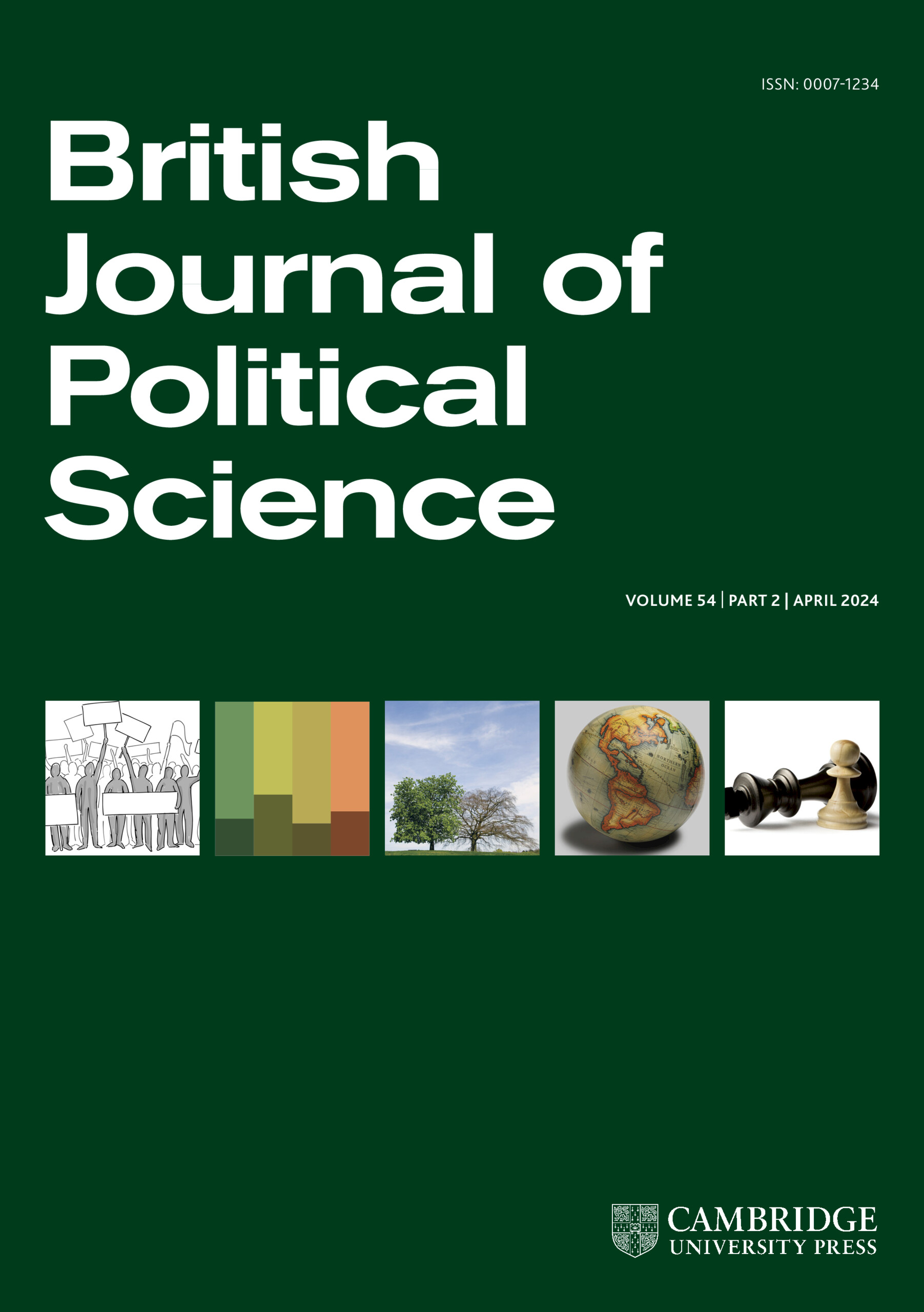Ancestral Kinship and the Origins of Ideology
IF 4.6
1区 社会学
Q1 POLITICAL SCIENCE
引用次数: 1
Abstract
Families are not only the first institution ever created, they are also, for most people, the first institution ever encountered. The preindustrial family structure, which was a function of local ecology and cooperation needs, instilled family members with different values, such as trust in strangers and respect for elders. These values passed through generations and, as we show in three studies, impact today's political attitudes and policies. First, using surveys of second-generation immigrants representing roughly 180 ethnicities living in 32 European countries, we show that the tighter kinship structure of a person's ancestors predicts right-wing cultural attitudes. Among those who are less engaged in politics, tighter ancestral kinship structure also predicts left-wing economic attitudes. In a second study, we control for country-level differences by comparing ethnic groups within countries and find that ancestral kinship strength predicts right-wing cultural attitudes but not left-wing economic attitudes. Finally, in a third study, we examine the policy implications of ancestral kinship. We show that stronger country-level ancestral kinship strength also increases anti-LGBT policies and welfare spending. Finally, we examine whether value systems link preindustrial kinship with modern political attitudes. In total, this work indicates that our political beliefs are rooted in the value systems and familial institutions created by our forebears.祖先亲属关系与意识形态的起源
家庭不仅是有史以来第一个建立的机构,对大多数人来说,也是第一个遇到的机构。工业化前的家庭结构是当地生态和合作需求的函数,它向家庭成员灌输了不同的价值观,如对陌生人的信任和对长辈的尊重。这些价值观代代相传,正如我们在三项研究中所表明的那样,影响着当今的政治态度和政策。首先,通过对居住在32个欧洲国家的约180个种族的第二代移民的调查,我们发现,一个人祖先更紧密的亲属关系结构预示着右翼文化态度。在那些较少参与政治的人中,更紧密的祖先亲属关系结构也预示着左翼的经济态度。在第二项研究中,我们通过比较国家内部的种族群体来控制国家层面的差异,发现祖先的亲属关系强度可以预测右翼的文化态度,但不能预测左翼的经济态度。最后,在第三项研究中,我们考察了祖先亲属关系的政策含义。我们表明,国家层面更强大的祖先亲属关系也会增加反LGBT政策和福利支出。最后,我们考察了价值体系是否将前工业时代的亲缘关系与现代政治态度联系起来。总的来说,这项工作表明,我们的政治信仰植根于祖先创造的价值体系和家庭制度。
本文章由计算机程序翻译,如有差异,请以英文原文为准。
求助全文
约1分钟内获得全文
求助全文
来源期刊

British Journal of Political Science
POLITICAL SCIENCE-
CiteScore
8.70
自引率
4.00%
发文量
64
期刊介绍:
The British Journal of Political Science is a broadly based journal aiming to cover developments across a wide range of countries and specialisms. Contributions are drawn from all fields of political science (including political theory, political behaviour, public policy and international relations), and articles from scholars in related disciplines (sociology, social psychology, economics and philosophy) appear frequently. With a reputation established over nearly 40 years of publication, the British Journal of Political Science is widely recognised as one of the premier journals in its field.
 求助内容:
求助内容: 应助结果提醒方式:
应助结果提醒方式:


